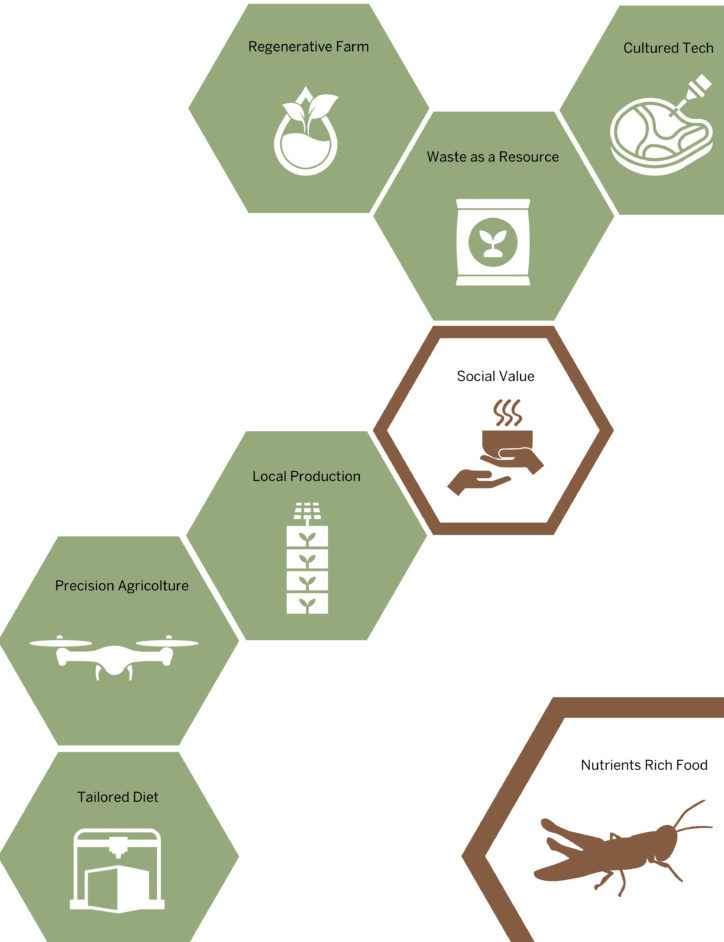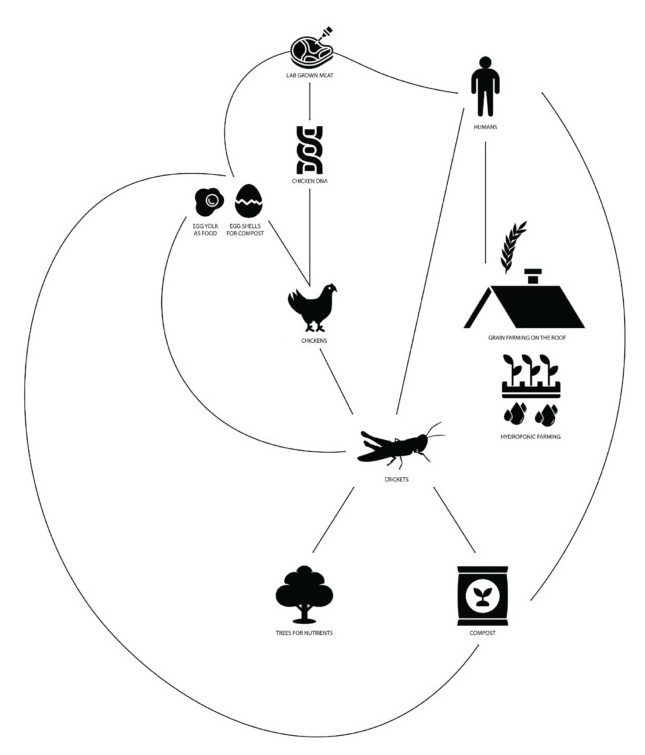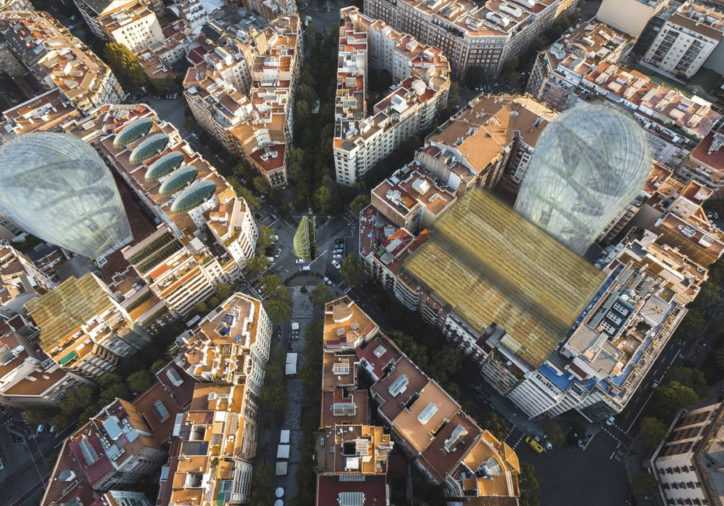Crick lab tackles, in a regenerative way, the challenges posed by the unstoppable human evolution. Looking at the food industry, data suggest that by 2050, the population will increase by a third, likewise, the food industry will have to raise the production by 70%. Thus, food has an active and fundamental role in such a transition, especially when looked at from a circular economy perspective. This project wants to be a jumping-off point for the implementation of cutting-edge technologies into the urban fabric o Barcelona’s Block. Overall, the proposal aims to shift from an obsolete linear economy to a circular one based on 7 pillars: materials are cycled at continuous high value; all energy is based on renewable sources; biodiversity is supported and enhanced through human activity; human society and culture are preserved; human activities maximize the generation of societal value; water resources are managed efficiently and cycled sustainably.
Fundamental key points of this proposal are:
- vertical farming; it allows for, in some cases, over ten times the crop yield per acre than traditional methods. Unlike traditional farming in non-tropical areas, indoor farming can produce crops year-round;
- satisfy the increasing food demand from the growing human population; cultured meat as a great alternative for consumers who want to be more responsible but do not wish to change their diet;
- the cricket farm in the center of the block; this subsists off the compost and feeds the poultry adjacent to the chicken coops; the poultry is used as cell cultures for the lab-grown meat developed in the labs within the central blocks;
- besides proposing s system that relies on the production of the specific nutrient amounts the inhabitants need through the precision agriculture practiced within the labs, the localized production in the hydroponic system also allows the residents to engage directly with the food they consume and provides a space of interaction and community between the residents of the block.
This system of production can be expanded within every block throughout the city resulting in an interconnected network of circular production of food and responsible management of the resources and byproducts.
Crick Lab is a project of IAAC, Institute for Advanced Architecture of Catalonia developed at Masters in Advanced Architecture in 2021/2022 by:
Student: Ariadna Giménez Lorente, Federico Caldi, Meagan Sinead Enright and Mira Housen
Faculty: Areti Markopoulou, Mathilde Marengo, David Andres Leon
Course: Circular Narratives


